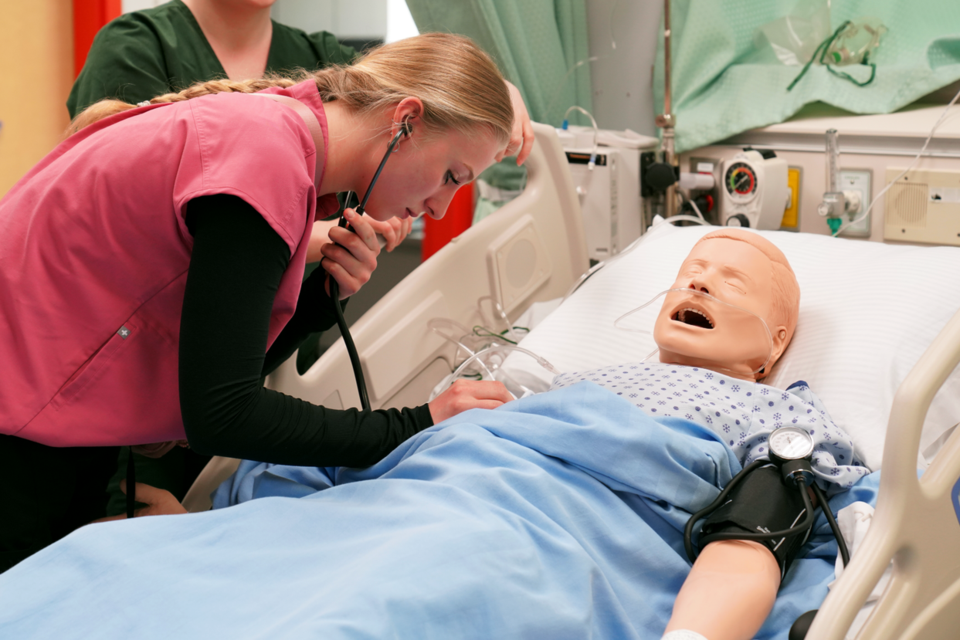Of the nearly 5,000 vacant nursing positions in B.C, 400 of those vacancies are in northern B.C. healthcare facilities.
According to the BC Nurses Union, at least 15 emergency room nurses in the past two years have either quit or taken on less-stressful positions rather than have to deal with workloads triple the rate of new staffing ratios adopted in a new three-year contract.
In an effort to boost nursing numbers, the provincial government set aside $96 million over three years to add 602 new nursing seats at post-secondary schools, to raise annual nursing student capacity to 2,662. Those new seats include 362 for registered nurses, 40 for registered psychiatric registered nurses, 180 for licenced practical nurses and 20 for nurse practitioners.
Chad Thompson, the College of New Caledonia’s vice-president academic, confirmed that 36 of the 153 seats went unfilled last fall in CNC’s baccalaureate nursing programs in Prince George and Quesnel.
Nursing capacity at CNC’s Prince George campus is 124, while Quesnel has added four new seats to boost its capacity to 32 students.
The two-year CNC licenced practical nursing program can accept up to 24 students in Prince George and last year it was filled. This fall, the college is launching a new one-year pathways to practical nursing certificate program for students in Burns Lake and Quesnel.
“We’ve had expansions in our capacity with additional seats having been added in Quesnel,” said Thompson. “So I think some of what may be happening is there are more options out there as students are searching for nursing programs. We recognize the dire need for nurses in northern B.C. and across the province and I’m confident we will get the programs filled again.”
Thompson says CNC’s healthcare assistant pathways program has been “hugely successful” getting workers trained for facilities across the Northern Health region. He said CNC, UNBC and Coast Mountain College in Terrace, as partners in the Northern Baccalaureate Nursing Program, have been working closely with the health authority to try to make nursing more attractive to students as a career choice.
He said CNC and UNBC have tried to make high school students more aware of career opportunities available in health sciences and healthcare bringing students in to tour classrooms through the Rotary Club’s Adventures in Healthcare program.
Starting this fall, UNBC’s new two-year baccalaureate program is geared toward students who might have started in a different career path and after five consecutive semesters they will graduate as registered nurses. Capped at 48 students, it requires at least 60 credit hours of postsecondary training, including 24 credit hours of healthcare-specific training. UNBC's downtown campus at the Wood Innovation and Design Centre has been remodeled to create a new lab for the program, which will also be offered at Northern Lights College in Fort St.John.
That’s in addition to UNBC’s longstanding baccalaureate registered nursing program for students who take their first two years of nursing at either college. Last year’s intake of 320 students was the highest its been at UNBC since 2009-10, when 321 students enrolled.
UNBC’s Family Nurse Practitioner program had 81 students this past year, an all-time high. UNBC had just one student in its post-diploma nursing program in 2022-23.


